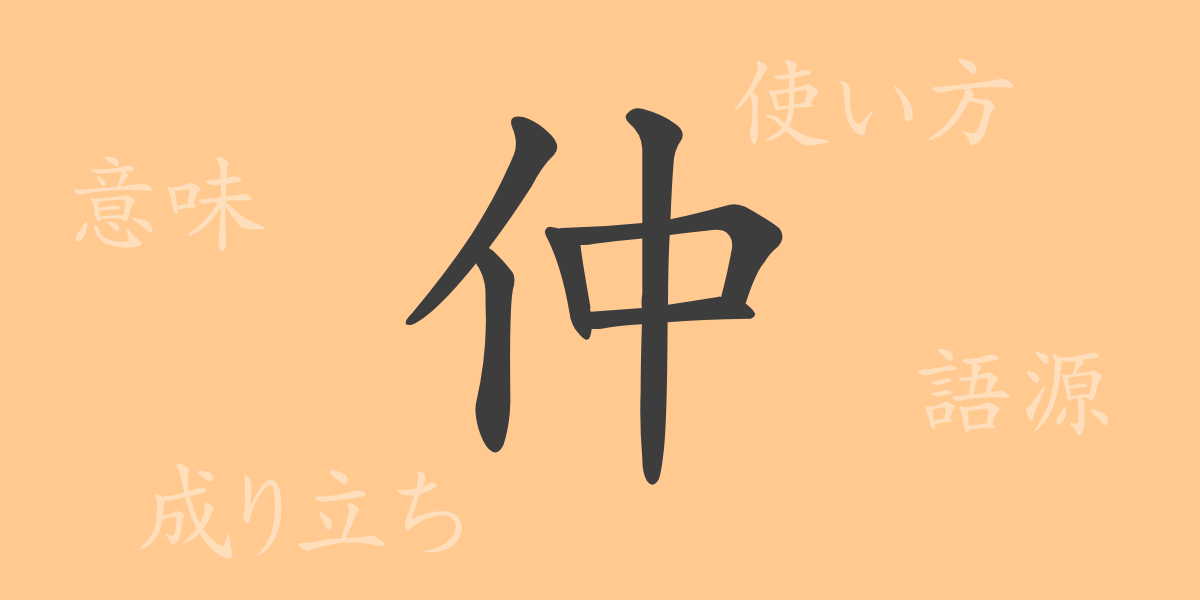The beauty of Japanese language lies in its rich expressiveness, where each Kanji character has a profound history and meaning. “仲(なか)” is one of the commonly used Kanji in everyday life, symbolizing the depth and bonds of human relationships. In this article, we delve into the origins, contemporary usage, and the idiomatic expressions related to “仲,” exploring the charm it holds.
Origins of “仲(なか)”
The Kanji “仲” originated in ancient China, initially serving as an alternate form of “中(ちゅう),” which means middle. It was used to represent a person standing in the middle, mediating or coordinating between others. Over time, it evolved to specifically denote relationships and interactions between people, embodying the role of mediation. Today, it often signifies close and intimate relationships.
Meaning and Usage of “仲(なか)”
“仲” primarily refers to the relationship or bond between people, typically indicating a harmonious or positive connection as expressed in “仲がいい,” meaning to have a good relationship. It also describes being situated in the middle of something, or the central part of various matters.
Readings, Stroke Count, and Radical of “仲(なか)”
The Kanji “仲” plays a significant role in the Japanese language through its form and meanings.
- Readings: On’yomi “チュウ,” Kun’yomi “なか.”
- Stroke Count: 6 strokes.
- Radical: “人(ひと・にんべん)” which is the radical for human-related characters.
Phrases, Idioms, and Proverbs Involving “仲(なか)”
There are numerous idioms and phrases incorporating “仲,” each reflecting the richness of expression in Japanese. For example:
- “仲間(なかま)” – A group of people with common goals or interests.
- “仲直り(なかなおり)” – To reconcile and restore a once strained relationship.
- “仲良し(なかよし)” – Close friends or companions.
- The proverb “仲の悪い瓢箪から駒が出る” implies that unexpectedly excellent offspring can come from a couple with a poor relationship, illustrating the unexpected outcomes in life.
Conclusion on “仲(なか)”
The Kanji “仲” is extensively used to express the nuances of human relationships. Understanding its origins, meanings, and applications enriches our communication in Japanese. Utilizing idioms and phrases involving “仲” allows for a deeper understanding and expression of interpersonal relations. Encountering “仲” in daily life offers an opportunity to appreciate the cultural and historical context behind this character.

























